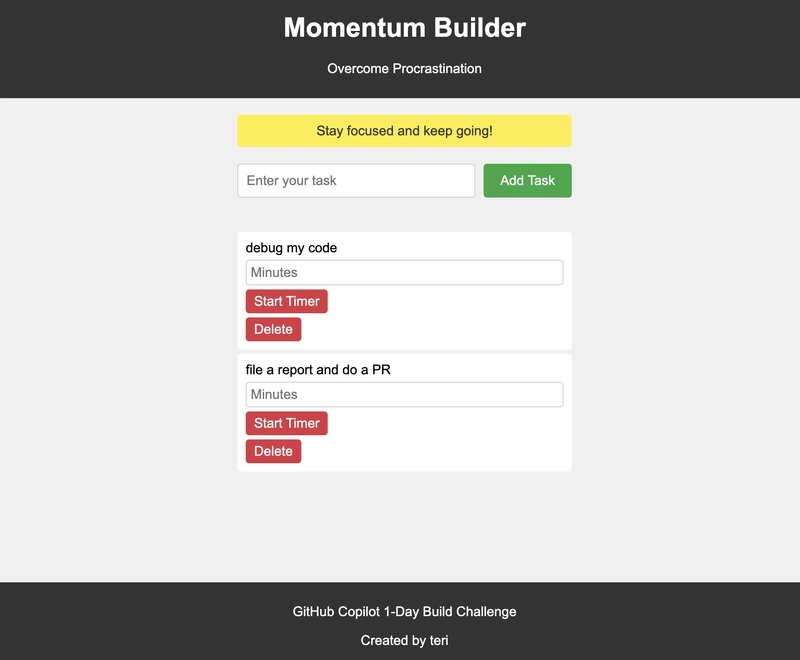Java Concurrency Mastery: A Comprehensive Guide to AQS, Locks, and Concurrent Collection
AbstractQueuedSynchronizer (AQS) AQS is the backbone of many concurrency utilities in Java. It's a framework for building locks and synchronizers. Key Features: State Management: AQS maintains a state variable that represents the synchronization state. This state can have different meanings depending on the implementation (e.g., lock count for ReentrantLock, read/write counts for ReentrantReadWriteLock). FIFO Queue: AQS uses a FIFO queue to manage threads that fail to acquire the lock. Each thread is wrapped in a Node and enqueued. Condition Support: AQS provides a ConditionObject that allows threads to wait for specific conditions to be met. Each condition maintains its own queue of waiting threads. Fairness: AQS supports both fair and non-fair implementations, affecting how threads acquire locks. ReentrantLock A reentrant lock is a synchronization primitive that provides more flexibility than intrinsic locks (synchronized). Key Features: Reentrancy: A thread can acquire the lock multiple times, and the lock count is incremented each time. Fairness: Can be configured to be fair (threads acquire locks in FIFO order) or non-fair (threads may acquire locks out of order). Condition Support: Allows threads to wait for specific conditions using Condition objects. Interruptibility: Threads waiting to acquire the lock can be interrupted. ReadWriteLock ReadWriteLock allows multiple readers to access a resource simultaneously while ensuring exclusive access for writers. Key Features: Shared Locks (Read Locks): Multiple threads can hold the read lock simultaneously. Exclusive Locks (Write Locks): Only one thread can hold the write lock at a time. Upgrade/Downgrade: Supports lock downgrade (write lock to read lock) but not upgrade (read lock to write lock). Fairness: Can be configured to be fair or non-fair. LockSupport LockSupport is a utility class that provides basic thread blocking and unblocking mechanisms. Key Features: Blocking: Uses park() to block a thread. Unblocking: Uses unpark() to unblock a thread. Low-Level: Often used internally by other concurrency utilities but can also be used directly for custom synchronization. Concurrent Collections Java provides several thread-safe collections optimized for concurrent access. ConcurrentHashMap High Concurrency: Uses a combination of segment locks and CAS operations to allow high concurrency. No Null Keys/Values: Does not allow null keys or values. ConcurrentLinkedQueue Lock-Free: Uses CAS operations for thread safety. Unbounded: No fixed capacity. CopyOnWriteArrayList Write-Heavy: Writes are expensive as they involve copying the entire array. Read-Heavy: Reads are extremely fast and lock-free. ConcurrentSkipListMap/ConcurrentSkipListSet Ordered: Maintains elements in sorted order. High Concurrency: Uses fine-grained locking. Blocking Queues Blocking queues are thread-safe queues that support blocking operations. ArrayBlockingQueue Bounded: Fixed capacity. Fairness: Can be configured to be fair. LinkedBlockingQueue Unbounded: Can be configured with a capacity, but defaults to unbounded. Performance: Better performance than ArrayBlockingQueue. PriorityBlockingQueue Priority: Elements are ordered by priority. Unbounded: No fixed capacity. SynchronousQueue Direct Handoff: No storage; producer threads wait for consumer threads and vice versa. DelayQueue Delayed Access: Elements can only be accessed after a specified delay. LinkedTransferQueue Transfer: Supports direct handoff between producer and consumer threads. Atomic Classes Atomic classes provide thread-safe operations on single variables. Key Features: CAS Operations: Use Compare-And-Swap (CAS) to ensure atomicity. No Locks: Avoids the overhead of traditional locks. Memory Barriers: Ensures visibility of changes across threads. Common Classes: AtomicInteger AtomicLong AtomicBoolean AtomicReference AtomicIntegerArray Thread Pools Thread pools manage a pool of worker threads to execute tasks efficiently. Key Features: Core and Max Threads: Manages a core pool size and a maximum pool size. Work Queue: Tasks are queued if all core threads are busy. Rejected Execution: Handles tasks when the queue is full and the maximum pool size is reached. Idle Threads: Can be terminated if they remain idle for a specified duration. Common Executors: FixedThreadPool: Fixed number of threads. CachedThreadPool: Dynamically creates threads as needed. SingleThreadExecutor: Single-threaded executor. ScheduledThreadPool: Supports scheduled and periodic tasks. Synchronization Utilities Java provides several utilities for synchronizing threads. CountDownLatch One-Time Use: Allows one or more threads to wait for a set of operations to complete. Count Down: Threads call countDown() to decrement the counter. Await: Threads call await() to wait until the counter reaches zero. CyclicBarrier Reusable: Allows multiple threads to wait at a barrier point. Barrier Action: Optional action to be executed when all threads reach the barrier. Reset: C

- AbstractQueuedSynchronizer (AQS) AQS is the backbone of many concurrency utilities in Java. It's a framework for building locks and synchronizers. Key Features: State Management: AQS maintains a state variable that represents the synchronization state. This state can have different meanings depending on the implementation (e.g., lock count for ReentrantLock, read/write counts for ReentrantReadWriteLock). FIFO Queue: AQS uses a FIFO queue to manage threads that fail to acquire the lock. Each thread is wrapped in a Node and enqueued. Condition Support: AQS provides a ConditionObject that allows threads to wait for specific conditions to be met. Each condition maintains its own queue of waiting threads. Fairness: AQS supports both fair and non-fair implementations, affecting how threads acquire locks.
- ReentrantLock A reentrant lock is a synchronization primitive that provides more flexibility than intrinsic locks (synchronized). Key Features: Reentrancy: A thread can acquire the lock multiple times, and the lock count is incremented each time. Fairness: Can be configured to be fair (threads acquire locks in FIFO order) or non-fair (threads may acquire locks out of order). Condition Support: Allows threads to wait for specific conditions using Condition objects. Interruptibility: Threads waiting to acquire the lock can be interrupted.
- ReadWriteLock ReadWriteLock allows multiple readers to access a resource simultaneously while ensuring exclusive access for writers. Key Features: Shared Locks (Read Locks): Multiple threads can hold the read lock simultaneously. Exclusive Locks (Write Locks): Only one thread can hold the write lock at a time. Upgrade/Downgrade: Supports lock downgrade (write lock to read lock) but not upgrade (read lock to write lock). Fairness: Can be configured to be fair or non-fair.
- LockSupport LockSupport is a utility class that provides basic thread blocking and unblocking mechanisms. Key Features: Blocking: Uses park() to block a thread. Unblocking: Uses unpark() to unblock a thread. Low-Level: Often used internally by other concurrency utilities but can also be used directly for custom synchronization.
- Concurrent Collections Java provides several thread-safe collections optimized for concurrent access. ConcurrentHashMap High Concurrency: Uses a combination of segment locks and CAS operations to allow high concurrency. No Null Keys/Values: Does not allow null keys or values. ConcurrentLinkedQueue Lock-Free: Uses CAS operations for thread safety. Unbounded: No fixed capacity. CopyOnWriteArrayList Write-Heavy: Writes are expensive as they involve copying the entire array. Read-Heavy: Reads are extremely fast and lock-free. ConcurrentSkipListMap/ConcurrentSkipListSet Ordered: Maintains elements in sorted order. High Concurrency: Uses fine-grained locking.
- Blocking Queues Blocking queues are thread-safe queues that support blocking operations. ArrayBlockingQueue Bounded: Fixed capacity. Fairness: Can be configured to be fair. LinkedBlockingQueue Unbounded: Can be configured with a capacity, but defaults to unbounded. Performance: Better performance than ArrayBlockingQueue. PriorityBlockingQueue Priority: Elements are ordered by priority. Unbounded: No fixed capacity. SynchronousQueue Direct Handoff: No storage; producer threads wait for consumer threads and vice versa. DelayQueue Delayed Access: Elements can only be accessed after a specified delay. LinkedTransferQueue Transfer: Supports direct handoff between producer and consumer threads.
- Atomic Classes Atomic classes provide thread-safe operations on single variables. Key Features: CAS Operations: Use Compare-And-Swap (CAS) to ensure atomicity. No Locks: Avoids the overhead of traditional locks. Memory Barriers: Ensures visibility of changes across threads. Common Classes: AtomicInteger AtomicLong AtomicBoolean AtomicReference AtomicIntegerArray
- Thread Pools Thread pools manage a pool of worker threads to execute tasks efficiently. Key Features: Core and Max Threads: Manages a core pool size and a maximum pool size. Work Queue: Tasks are queued if all core threads are busy. Rejected Execution: Handles tasks when the queue is full and the maximum pool size is reached. Idle Threads: Can be terminated if they remain idle for a specified duration. Common Executors: FixedThreadPool: Fixed number of threads. CachedThreadPool: Dynamically creates threads as needed. SingleThreadExecutor: Single-threaded executor. ScheduledThreadPool: Supports scheduled and periodic tasks.
- Synchronization Utilities Java provides several utilities for synchronizing threads. CountDownLatch One-Time Use: Allows one or more threads to wait for a set of operations to complete. Count Down: Threads call countDown() to decrement the counter. Await: Threads call await() to wait until the counter reaches zero. CyclicBarrier Reusable: Allows multiple threads to wait at a barrier point. Barrier Action: Optional action to be executed when all threads reach the barrier. Reset: Can be reset for reuse. Semaphore Permits: Manages a set of permits that threads can acquire. Fairness: Can be configured to be fair or non-fair. Acquire/Release: Threads acquire permits to access resources and release them afterward.
What's Your Reaction?





















![Here’s a quick in-person look at Samsung’s Android XR headset [Gallery]](https://i0.wp.com/9to5google.com/wp-content/uploads/sites/4/2025/01/samsung-android-xr-moohan-headset-4.jpg?resize=1200%2C628&quality=82&strip=all&ssl=1)






